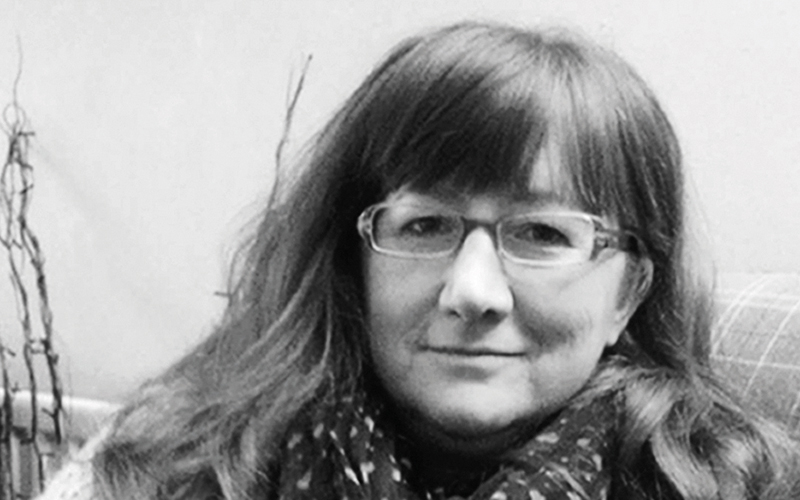This month we ask : “Why do we need more advanced and consultant roles across biomedical science and how do we achieve this?”

Joanne Motte

Consultant Biomedical Scientist
Gloucestershire Hospitals NHS Foundation Trust
Pathology has an ever-changing demand for services competing with a COVID-19 backlog and challenging new NHS cancer standards. Our workforce is rapidly depleting, as senior doctors in the NHS are reducing hours, declining overtime and reports reveal some are retiring early to avoid substantial pension tax bills. Such findings prompt concern that waiting lists will significantly lengthen, patients will receive inferior care and understaffing will become the accepted culture.
We already see funding restraints and lack of investments in replacing outdated equipment with modern technology that could help maximise the patient’s specimen’s throughput. These cumulative factors limit our ability to deliver an earlier diagnosis for patients nationally.
We must rectify these challenges by recruiting and training at all levels, allowing full career progression at all pay grades.
Traditional career routes with accredited degrees can sit alongside the new modernising scientific career pathways.
The Higher Specialist Scientific Training programme equips healthcare scientists with eligibility for Consultant Clinical Scientist. This career pathway would create a cohesive scientific and medical consultant workforce, allow staffing and recruitment issues to be eased in time, improving diagnostic turnaround times.
Support from internal management and consultants, however, is crucial and supporting training is needed – our biggest hurdle in workforce modernisation.
Nicki Lawrence

Principal Biomedical Scientist and Advanced Practitioner in Morphology
University Hospitals of North Midlands
Within the haematology lab setting, our clinical colleagues perform a wide range of tasks with their roles, including interpretation of highly complex results, providing guidance to the service user, clinical oversight of EQA schemes and long-term strategic planning. With the recognised difficulty in recruiting to clinical posts, we need to find a solution to how this role is managed by our pathology services.
Biomedical scientists working towards or at an advanced or consultant level bring with them a wealth of technical, practical and theoretical knowledge and expertise, and will usually have been working with a high degree of autonomy for many years. This means they are well placed to support, drive, and develop the service while fulfilling the clinical role that traditionally a clinical consultant would perform. Pursuing an advanced practice role with a clinical bias also allows those who do not want to follow the traditional management route of progression to develop their career fully.
Currently, there is no defined framework for advanced roles in several pathology disciplines and as part of my Professional Doctorate, I’ll be determining if an advanced role can be standardised at a national level and how we achieve that. If we can define the role but still allow a degree of flexibility based on individual trust and departmental needs, I believe more trusts will recruit to this role, which will help future-proof clinical input into our laboratory services while also advancing the role of the biomedical scientist.
Sarah Gibson

Consultant Biomedical Scientist,Cellular Pathology
The Newcastle upon Tyne Hospitals NHS Trust
Increasing demands placed on histopathology services by an ageing population, elective recovery and a rise in molecular testing, coupled with the staffing crisis, have fuelled the necessity for a sustainable workforce that meets current and future service needs.
RCPath’s 2018 census, Meeting pathology demand, found only 3% of departments had enough staff, 78% reported consultant vacancies, and collectively spend £27m per annum on outsourcing and locums. This census, and the GIRFT report in 2021, highlighted that the upskilling of scientists would play a key part in mitigating workforce shortages.
Advanced roles in specimen dissection are now well-established, significantly releasing consultant time for reporting. More recently, reporting of histopathology specimens by consultant biomedical scientists has resulted in measurable reductions in turnaround times and outsourcing requirements.
Upskilling into these roles requires significant investment of time and money. There must be expansion of the scientific workforce if experienced biomedical scientists are to retrain to fill gaps in the medical workforce. Supporting progression of biomedical scientists into advanced roles requires dedication, shared vision, and investment of the entire team. Buy-in from medically qualified histopathologists is critical; key to this is having advocates from within the medical community who can share learning and give their first-hand experience of the benefits these roles bring.
Image credit | Istock
